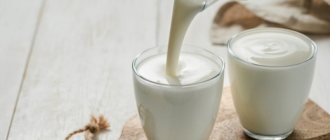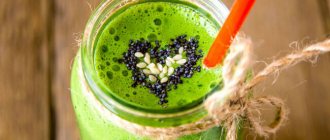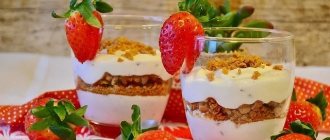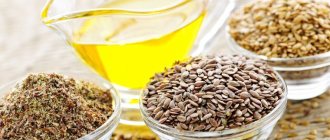Sports nutrition consumed during training can make your workouts more effective and efficient, you need to choose the right supplements. In this article we will tell you what to drink during a workout in the gym.
During sports, your body needs more serious “fuel” than ordinary water. Welcome to the world of nutrition during your workout!
You already know how important nutrition is before and after training. This is a great opportunity to get nutrients that improve physical endurance, speed up recovery between workouts, and reduce muscle fatigue and the risk of injury.
What to drink before training: general scheme
The most important recommendation on this topic is very simple: you should not allow yourself to get thirsty during fitness classes! Sports medicine has clear recommendations on how to build your drinking regimen. “Drink 0.5 liters 1-2 hours before training,” explains Nadezhda Levchenko , sports doctor, fitness testing specialist at the federal network of fitness clubs X-Fit.
-Then take a few sips every 10-20 minutes of your workout. Finally, drink 0.5 liters within an hour after your workout.” Now let's look at each of the drinks separately.
What to drink before training: water, isotonic drinks, tea
Dehydration of the body (dehydration) leads to premature fatigue, poor health and even the inability to continue exercising. During training, it is best to drink plain water or so-called isotonic drinks (sold in sports nutrition stores and fitness bars). “They usually contain minerals and a small amount of carbohydrates,” says Anastasia Yurkova , fitness manager of the X-Fit Monarch club, personal trainer of the group programs of the federal network of fitness clubs X-Fit. “They are needed, first of all, during intense and long-term endurance training in order to maintain water-salt balance. You need to drink in small sips during training.”
As for water, so-called table mineral water without carbon is best suited for constant consumption: it quenches thirst and helps replenish the deficiency of salts in the body. “As a result of high sweating, the body loses a lot of salts and minerals,” explains Dmitry Polyudov, production manager and technologist at the Pure Water - TM Noringa company. — And to compensate for lost microelements and restore water-salt balance during an active lifestyle, it is necessary to consume water enriched with micro- and macroelements. For example, our brand product (water enriched with minerals) was developed specifically for active people. The main difference between such water and ordinary drinking water is the increased content of calcium, magnesium and sodium. As a result, the body is saturated with the necessary salts, which contributes to an accelerated process of recuperation.”
Green tea helps quench your thirst when playing sports . “Its antioxidant properties help neutralize free radicals that are formed during exercise,” says Nadezhda Levchenko, “and the flavonoids contained in it protect cartilage tissue and improve the absorption of fats. There is evidence that drinking green tea helps increase the performance of athletes by 15–20%.”
Drinking during training - benefit or harm
Among ordinary gym goers, you can often hear that you should not drink water during physical activity. And no one will explain why exactly.
This is another common myth that has been brought into fashion by weightlifters.
The ban on water in the training room was a generally accepted rule in the 50s and 60s of the last century.
According to the rules of weightlifting competitions in those years, when setting a world record, an athlete had to weigh the same both at the beginning of the competition and at the end. If this was not the case, the record was not counted!
Coaches taught athletes not to drink water during training so that it would be easier for them during competitions.
This practice was also widespread among representatives of martial arts.
“Getting weight” for the competition, the athletes actively worked out in warm clothes, without consuming water. To get into the desired weight category, every kilogram was important to them, which came out in this way with excess fluid - sweat and breath.
But this practice is a lot of stress for the body . And to the question, is it possible to drink water during training, the answer will be in the affirmative. It is possible and even vital!
If you do not regularly drink water during physical activity, the likelihood of developing problems with the cardiovascular system increases.
Remember, our blood is 95% water. During intense physical activity, the body quickly loses water through sweating and breathing.
The blood becomes thicker, and it is harder for the heart to push it through the vessels. Physical activity forces the heart to work harder, pumping blood faster, which it cannot do without sufficient fluid.
Regularly creating such unfavorable conditions for the functioning of the heart, health problems are guaranteed!
Water during training replenishes lost fluid, helping the cardiovascular system function normally, so you should not neglect it.
What to drink before training: coffee
This drink in relation to training has ardent supporters and no less ardent opponents. The former rely on its tonic effect, the latter point out that coffee in large quantities dehydrates and can interfere with muscle growth. The truth, as always, is somewhere in the middle.
“When it comes to sports nutrition, caffeine plays a special role,” says Renee McGregor, biochemist, sports nutritionist and author of the best-selling book “Sports Nutrition. What to eat before, during and after training.” “It is used by many professional athletes as a performance-enhancing substance, but as with everything else, what is beneficial for one may not necessarily have a positive effect on another. There is evidence that if caffeine is completely eliminated from the diet for 10 days and then taken before competition, it will have a noticeable effect on a person who would not normally respond to it.”
In fact, 1-2 cups of natural coffee a day are only beneficial for athletes. “The substances contained in this drink help reduce muscle pain,” says Nadezhda Levchenko. “In addition, coffee stimulates the use of body fat reserves. Coffee with milk will help meet the body’s need for proteins and carbohydrates, but sugar, of course, is undesirable.” You should also remember that coffee has diuretic properties, so you should not drink it instead of water.
It is best to consume this drink before strength training, interval training, speed training and other explosive workouts, as caffeine improves fat loss and can literally provide a fountain of energy. “However, with frequent use in large doses, caffeine, as a rule, has the opposite effect,” warns Anastasia Yurkova. “It is impossible to endlessly stimulate the central nervous system; at some point, while adapting, it stops responding to an external stimulus. And it may simply turn off, then instead of vigor you will get drowsiness and lethargy.”
What to remember when choosing a vitamin complex
Taking vitamins for athletes is distinguished by an enhanced formula - depending on the state of health, there may be contraindications (some complexes are contraindicated for pregnant women, patients with diabetes, allergies to certain components of the composition, and some other restrictions).
Before use, make an appointment with a nutritionist - this will not only help you maintain your health, but also get the maximum benefit from vitamins during your training period.
The doctor will select the drug individually, including the method of administration - oral administration or intramuscular injections (relevant for professional athletes, since the method of administration and dosage affect the increase in athletic performance).
Choose your healthy supplements wisely and stay healthy!
What to drink before training: juices and sweet soda
Here the opinions of experts differ. Doctors believe - no sweet sodas! The arguments are compelling: carbonated water plus high sugar content, which leads to changes in its balance in the blood, makes us feel tired. And juices do not provide any benefit during fitness: due to the fructose content, they act much like sweet soda. “If you drink juices, then only freshly squeezed ones and it is advisable to dilute them with water (in a ratio of at least 1:2 or stronger) so as not to irritate the mucous membranes of the digestive tract,” says Nadezhda Levchenko categorically. “However, juices, unlike sodas, partly satisfy the need of exercisers for carbohydrates and maintain the balance of vitamins, the loss of which is high in athletes. It’s better to add salt to vegetable juices - this will help replenish sodium salts.”
Nevertheless, many athletes use this technique: if you don’t have time to eat and digest what you eat (for example, before a morning jog), drink sweet juice or still lemonade. After 10-15 minutes, you can start training - and the sugar will burn, and there will be no hunger fainting. “ Indeed , fast carbohydrates, and even in liquid form, will very quickly enter the bloodstream and provide energy for exercise,” agrees Anastasia Yurkova. - This is such an express option if you did not have time to eat complex carbohydrates 2-3 hours before training. However, you shouldn’t get carried away with it, it stimulates a sharp jump in blood sugar, which is not very good for metabolism and normal functioning of the body.”
The role of water in the body
A person can live without air for about 3 minutes, without water for a week, without food for a month.
Our body consists of 70% water, blood - 95%, and muscles - 75%.
All chemical reactions inside a person occur either in a liquid medium or with the participation of water.
The work of muscles and the synthesis of muscle tissue, mental activity, the absorption of food and the removal of waste products, the work of internal organs - all this occurs with the participation of water.
Therefore, maintaining water balance is important throughout the day.
What to drink before training: smoothies and milk drinks
But fashionable and, of course, healthy drinks based on milk, whey and other fermented milk drinks, such as smoothies and yogurts, alas, are not at all suitable for fitness. After all, this is more likely not a drink, but food.
“Such drinks are an easy meal, as they contain all the main nutrients (proteins, fats and carbohydrates),” says Anastasia Yurchenko. — For many adults, the process of assimilation of milk and dairy drinks is difficult, this is due to a decrease in the production of enzymes that break down milk protein with age. If you drink such a drink and after some time you go to training, the body will still be busy with the digestion process, hence the feeling of overeating.”
Formulas are not recommended as a post-workout drink for the same reason: it will take quite a long time for the body to break down all the ingredients. It is better to drink just water, tea or a sports post-workout drink (protein or protein-carbohydrate).
[new-page]
What to drink before training: sports drinks and energy drinks
Cans of energy drinks from supermarkets and drinks from sports nutrition stores are two different things. The former, with the help of caffeine and other substances, literally raise the body on its hind legs, for which they then have to pay with lethargy and weakness. The latter provide energy from carbohydrates, and a set of vitamins and amino acids helps break down fats.
“Sports pre-workout (sports energy) drinks contain, first of all, energy phosphates and their precursors, roughly speaking, direct energy for muscles. Of this group of supplements, the most common are creatine products in pure form or in the form of mixtures with other substances,” explains Nadezhda Levchenko.
A sports drink is not a dope, but simply a collection of substances isolated from ordinary foods that help produce energy. Therefore, it is best to drink such solutions immediately before or during training. “It makes sense to drink special pre-workout sports drinks (in the store they are called “pre-workouts”) only before high-intensity training - interval or strength training,” says Anastasia Yurchenko . “For long-term, low-intensity training, there is no point in doing it because it is aimed at increasing power, not endurance.”
And, of course, you shouldn't drink sports drinks on days when you don't exercise or before bed.
What vitamins should you take?
When playing sports, it is important to consume enough vitamins and minerals. Many athletes take special supplements that make their daily diet more balanced.
What vitamins should you take during training for high-quality results?
- B vitamins - participate in protein-carbohydrate metabolism, prevent the development of varicose veins, accelerate metabolism, participate in fat metabolism, improve skin condition, nourish bone marrow, strengthen the nervous system;
- Folic acid – eliminates stress, accelerates muscle recovery;
- Vitamin C – strengthens the immune system, reduces pain and aches in joints and muscles, and promotes tissue growth;
- Vitamins K, E - strengthen blood vessels;
- Vitamins A, D, H - make the skin and muscles more elastic, strengthen the musculoskeletal system.
Please note that any vitamin complexes or specific medications can only be prescribed by a doctor.











